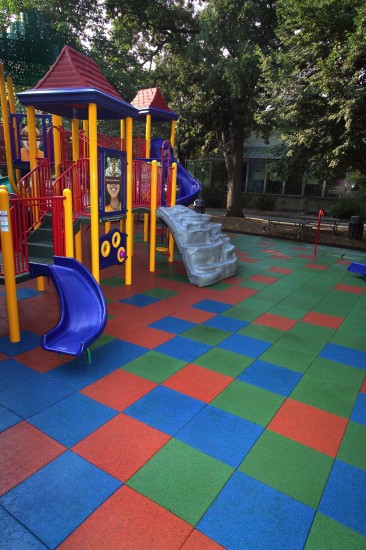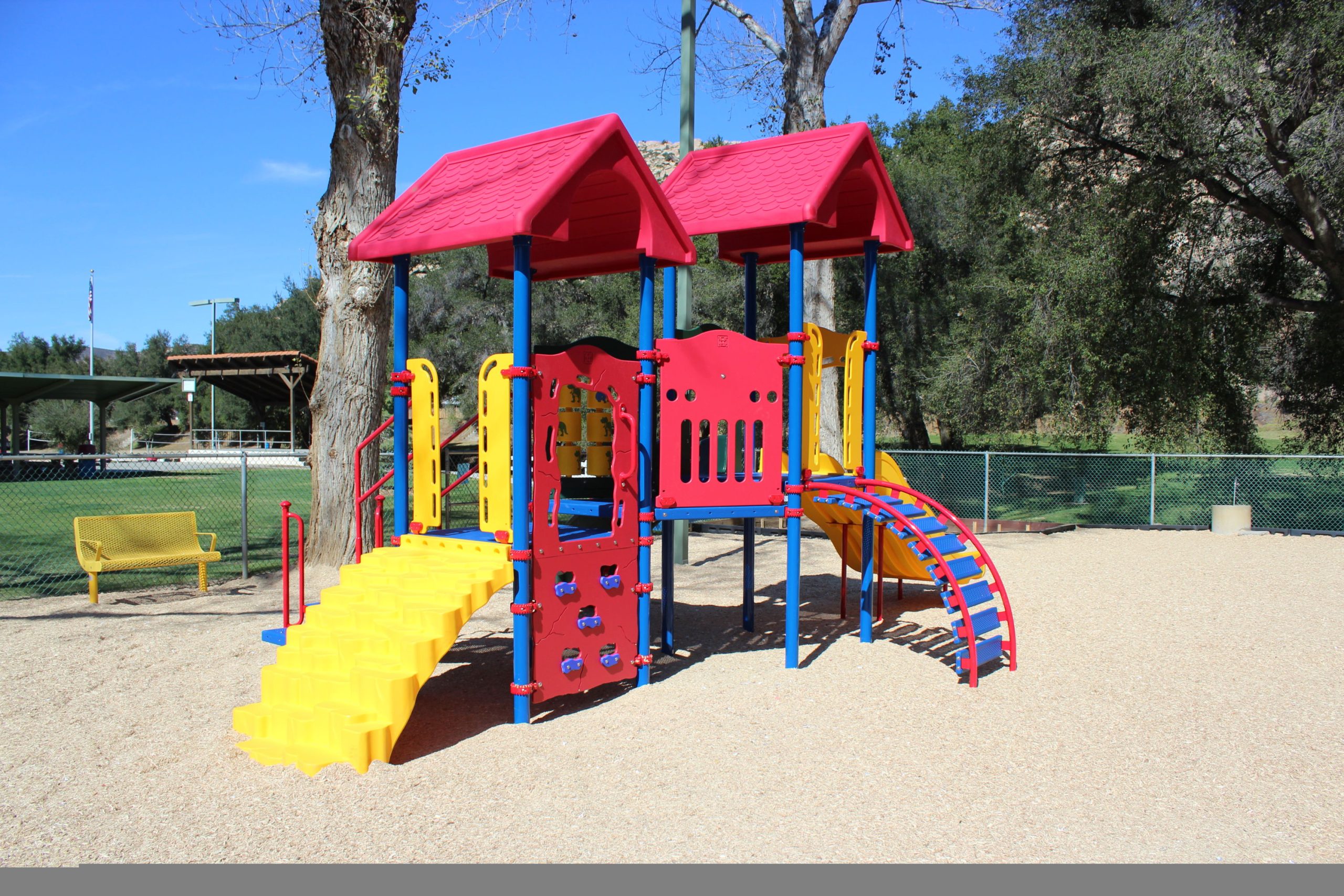Pros and Cons of Playground Surfacing Materials: Engineered Wood Fibers, PIP Rubberized Surfacing, SofTile Interlocking Rubber Tiles
Playground surfacing materials include engineered wood fibers, also known as wood chips, PIP rubberized surfacing, SofTile interlocking rubber tiles, playground sand, shredded rubber chips or nuggets. Pacific Play Systems offers a wide selection of both synthetic as well as natural playground surfacing products to its customers throughout Southern California and beyond.
Our surfacing products have been specifically designed and tested to absorb the impact of a fall when children are playing. The American Society of Testing and Materials requires every elevated play structure to have protective surfacing. Playground ADA accessibility is also a key factor in selecting the appropriate playground surface. The most popular ADA accessible playground surface materials include poured in place (PIP) rubberized surfacing, interlocking rubber tiles, and engineered wood fibers.
Engineered wood fibers are considered one of the most cost-effective playground surfaces available. This option is very popular because of its low cost, local availability, ease of installation and low maintenance cost. At Pacific Play Systems, our Play softwood fibers have been tested by ASTM for safety and are certified for impact attenuation when installed and maintained at the proper depth. The installation of the wood fibers can be quite simple. The fibers are usually blown in with a large hose and layered accordingly. This process can take less than an hour to fill a large area. There is little maintenance required for engineered wood fibers. We recommend topping off the surface every few years as needed in order to maintain its proper depth. Engineered wood fibers are generally installed at a compacted depth of 12″ over. For sites with poor drainage, a site drain or a gravel base may be added in order to improve drainage. If vegetation growth is an issue, a layer of filter fabric can be added at the bottom in order to control weeds.

Interlocking rubber tiles are another safe option for playground surfacing, suitable for schools, parks, churches, etc. At Pacific Play Systems, our SofTile interlocking rubber tiles are the best in the industry and provide an attractive and durable surface that is ideal for ADA accessibility. Our SofTile products are a certified protective surface that can be customized with different colors and patterns. Aside from the standard colors, there is a wide range of custom colors such as spring meadow, sandy lane, coral clay, blue ice, roasted pepper, etc. These colors can also be blended to satisfy any project’s most specific architectural requirements. These tiles are ideally installed over an asphalt or concrete sub-base, but they can also be installed over a compacted sub-base such as DG or crushed gravel. Since rubberized tiles are produced in a controlled factory environment, each and every tile performs the same, offering unmatched consistency and superior fall protection ratings.
Poured in place surfacing, commonly known as PIP, is the most sought after playground surfacing material on the market today. Well known for its ability to adhere to irregular shapes, this versatile surfacing offers designers unlimited possibilities for designing creative patterns and colors. PIP surfacing is known for its durability, impressive look and for having a seamless surface that can be very colorful. There is little to no maintenance for this type of surfacing. Over time, poured in place can show wear and tear in high traffic areas, but a feasible option is to re-top the surface. This is the most cost-efficient way to repair a worn surface and transform it into a brand new looking surface. Overall, poured in place surfacing is the highest quality playground surfacing available today.

Several factors influence whether interlocking tiles should be used or PIP. Generally speaking, PIP is a better choice for sites with irregular shapes or for installation over a compacted sub-base such as DG or gravel. Also, PIP is a better choice if free form sophisticated patterns and colors are desired. Tiles can also be installed over a compacted sub-base and can also accommodate irregular shapes, but some additional preparation may be required. Repairs are more difficult to do with PIP, as color match can be a challenge, unless if a contrasting color or pattern is used. Rubberized tiles on the other hand offer the peace of mind of knowing exactly how each and every tile is going to perform since they are manufactured in a controlled factory environment, offering ease of replacement should a few tiles become vandalized. Please feel free to contact us for more information.

